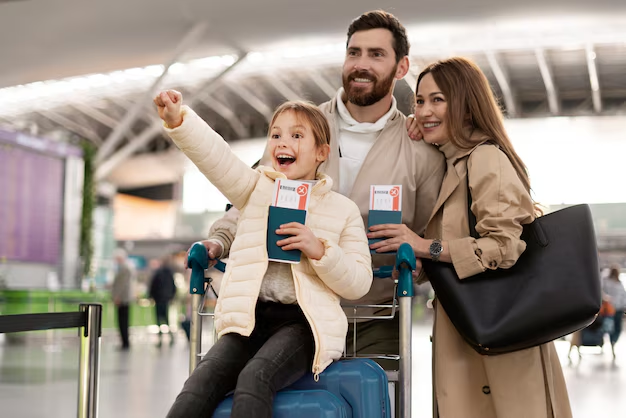The Ultimate Travel Guide: Exploring the World
Traveling is one of the most enriching experiences that can broaden your perspective, foster personal growth, and introduce you to diverse cultures. Whether you’re an experienced globetrotter or a first-time adventurer, the world is full of awe-inspiring places to explore. This ultimate travel guide will help you plan and navigate your journey, whether you’re dreaming of exotic beaches, vibrant cities, or serene mountain landscapes.
1. Planning Your Trip
The first step to any successful travel experience is thorough planning. Before you book your flight or pack your bags, it’s essential to do some research. Start by choosing your destination. Think about the type of experience you want—whether it’s a relaxing beach vacation, a cultural city tour, or an adventurous mountain expedition. Once you know where you’re headed, consider the following factors:
- Visa Requirements: Research whether you need a visa to enter your destination country. Many countries require tourists to apply in advance.
- Season and Weather: Check the weather for the time of year you’re traveling. Some places are best visited in the off-season when prices are lower and crowds are fewer.
- Budgeting: Determine how much you’re willing to spend and create a realistic budget for your trip, covering flights, accommodation, food, activities, and souvenirs.
- Safety and Health: Ensure you’re aware of any health risks or safety advisories. Some countries require certain vaccinations or precautions against diseases.
2. Booking Flights and Accommodation
Once your travel details are set, it’s time to book flights and accommodation. Here are some tips:
- Flights: Use flight comparison websites like Skyscanner, Google Flights, or Kayak to find the best deals. Book in advance for better prices, and be flexible with your dates to find the most affordable options.
- Accommodation: Choose accommodation based on your budget and preferences. Hostels are great for budget travelers, while luxury hotels and resorts cater to those seeking more comfort. Alternatively, Airbnb or vacation rentals can offer more authentic and local stays.
3. Packing Essentials
Packing for a trip can be stressful, but with the right strategy, you can make it easier:
- Packing Light: Try to pack only the essentials to avoid heavy luggage. Stick to versatile clothing items that can be mixed and matched.
- Documents: Don’t forget your passport, visa (if necessary), tickets, and travel insurance details. Consider carrying digital copies as backups.
- Health & Hygiene: Pack toiletries, medications, and a small first aid kit. Remember to carry sunscreen, insect repellent, and any prescription medications you might need.
- Electronics: Ensure you have the right adapters for your destination, along with a portable charger and any other electronics you may need (e.g., camera, phone, tablet).
4. Navigating Local Culture and Etiquette
When traveling, it’s essential to be respectful of the local culture and traditions. Learning about customs, greetings, and acceptable behavior can go a long way in helping you fit in and make meaningful connections. Here are a few general tips:
- Language: While English is widely spoken in many countries, learning a few basic phrases in the local language can be appreciated by locals.
- Dress Code: In some places, modest dress may be expected, especially in religious or conservative areas. Always do some research on local customs before packing.
- Tipping Etiquette: Tipping practices vary worldwide. In some countries, tipping is expected, while in others, it’s not customary. It’s worth learning about these practices to avoid awkward situations.
5. Experiencing the Local Cuisine
One of the most exciting parts of traveling is indulging in the local food. Each country has its own culinary delights, from street food to fine dining. Don’t miss out on the local specialties, and be sure to explore local markets and eateries. Keep in mind:
- Street Food: It’s often a delicious and inexpensive way to sample local cuisine. However, ensure the food is freshly prepared to avoid foodborne illness.
- Dietary Restrictions: If you have dietary preferences or restrictions, do your research beforehand. Many countries have vegetarian, vegan, and gluten-free options.
6. Immersing Yourself in Local Experiences
Travel isn’t just about sightseeing; it’s about experiencing the culture, meeting locals, and exploring unique places. Be open to activities like local festivals, guided tours, or volunteering opportunities. You might discover hidden gems or activities that you hadn’t planned on before. A few ways to do this include:
- Walking Tours: Many cities offer walking tours that provide in-depth knowledge about the culture and history of the place.
- Local Markets: Visit local markets to get a taste of the everyday life of the locals. You’ll find not just food but crafts, clothes, and souvenirs unique to the area.
- Cultural Etiquette: Engage in respectful cultural practices, like removing shoes before entering homes in some Asian cultures or covering your head when visiting temples in other parts of the world.
7. Staying Connected and Safe While Traveling
While you’re off exploring the world, it’s essential to stay connected with family and friends for safety reasons. Here’s how you can stay in touch:
- Sim Cards & Wi-Fi: Many countries offer affordable local SIM cards for tourists. Alternatively, many accommodations and cafes offer free Wi-Fi.
- Emergency Contacts: Keep a list of emergency contacts, including the local embassy and emergency services number, handy in case something goes wrong.
FAQs
- How do I choose the best destination for my trip? Consider your interests—whether you want to relax, explore history, or have an adventure—and research destinations that align with your preferences.
- How do I stay safe while traveling? Stay aware of your surroundings, avoid risky areas, keep your valuables secure, and always have a plan for emergency situations.
- What’s the best way to manage money while traveling? Use a mix of cash, debit/credit cards, and travel money cards. Always notify your bank of your travel dates to avoid card issues.
- Is it necessary to buy travel insurance? Travel insurance is highly recommended to cover unexpected events like medical emergencies, flight cancellations, or lost luggage.
- Should I travel alone or with someone? It depends on your personality and comfort level. Solo travel can be empowering, while traveling with others can provide companionship and shared experiences.
- What’s the best way to deal with language barriers? Learn a few basic phrases in the local language, use translation apps, and be patient with gestures.
- How can I deal with jet lag? Stay hydrated, avoid caffeine, and adjust to the local time zone as soon as you arrive.
Conclusion
Traveling is a gateway to new experiences, cultures, and lifelong memories. Whether you’re venturing to bustling cities or quiet villages, the world has so much to offer. By planning ahead, staying safe, and being open to new experiences, you can make the most out of your travels.
Key Takeaways
- Plan your trip carefully by considering destination, budget, and safety.
- Pack light, but don’t forget the essentials like documents, health items, and adapters.
- Immerse yourself in local cultures through food, customs, and activities.
- Stay safe by keeping in touch with loved ones and being aware of your surroundings.

